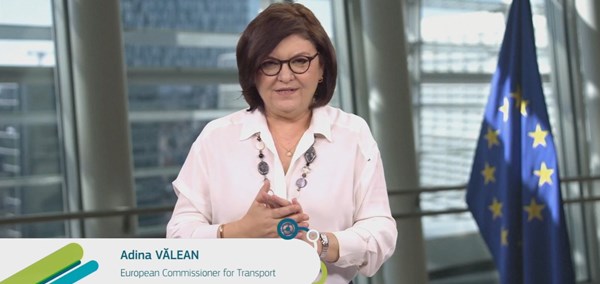Last modified more than a year ago

EUCAD21: Europe discusses its vision of cooperative, connected and automated mobility
The third European Conference on Connected and Automated Driving, EUCAD 2021, has taken place from 20 until 22 April. Over three days, EU leaders, CEOs and representatives from academia and road transport discussed their visions on the way forward towards cooperative, connected and automated mobility (CCAM)
As the leading conference on connected and automated driving in Europe, EUCAD21 brought together the Who’s Who of thought leaders in the field to discuss how to make CCAM a reality. Co-organised by the European Commission and the ARCADE project, the three-day event offered policy-oriented plenary sessions and a virtual exhibition that featured R&I projects and other initiatives active in the field of automated mobility. To complement the high-level discussions taking place during the plenary sessions, partners from the ARCADE project collaborated with the CCAM Partnership Executive Group to organise breakout sessions offering deep-dives into specific R&I challenges.
This year’s edition of the conference took place under the motto “Yes, we CCAM!”, highlighting the crucial role of the upcoming CCAM Partnership in implementing the new technology. The Partnership aims to exploit the full systemic benefits of new mobility solutions enabled by CCAM: increased safety, reduced environmental impacts, and inclusiveness.
Green and smart transportation – only by engaging citizens
The conference was opened by Mariya Gabriel, European Commissioner for Innovation, Research, Culture, Education and Youth, who stressed the essential role of CCAM in fulfilling the goals of the European Green Deal and the Sustainable and Smart Mobility Strategy. These goals can only be achieved by ensuring cooperation between stakeholders, and by engaging citizens:
“I consider the concept of citizen engagement essential for wider acceptance of automated driving technologies. By involving regional actors, we can make the society a part of the solution.”
Mariya Gabriel, European Commissioner for Innovation, Research, Culture, Education and Youth
Seen as an integral part to bringing CCAM to the roads, the need for cooperation and coordination was stressed by many speakers during the conference.
Adina Vălean, the European Commissioner for Transport emphasised the importance of data availability and quality for CCAM deployment. She insisted on the central role of innovation and technology in the goals of our society:
“Innovation and technology are an indispensable part of every solution we have for our global challenges. One challenge linked to the transport and mobility sector is how to move people while also achieving less pollution, more efficiency and improved connectivity. To make this happen we have to deploy at greatest speed, all the technologies available and invest in further mobility targeted research.”
Adina Vălean, the European Commissioner for Transport
Ms. Valean furthermore supported the call for improved cooperation:
“To be smarter, we need to share more. Share visions, share ambition, share data and share services.”
The second key challenge identified by many speakers was the need to make mobility more inclusive: Henrik Hololei, Director-General for Mobility and Transport emphasised in his keynote speech that no one should be left behind:
“Mobility must be available and affordable for all“
Henrik Hololei, Director-General for Mobility and Transport
This need for inclusive mobility was further stressed by Director-General for Research and Innovation, Jean-Eric Paquet, highlighting the importance of engaging citizens in a co-creation process from the start.
The closing session of the EUCAD21 offered insight to the topics that has been accentuated during the conference by experts, from the user, researcher, road operator and the industry perspectives. The need for trust between governments and users in order to achieve acceptance of the new technologies was once again highlighted. The panellists thanked the ARCADE Consortium for its essential work in creating the CAD Knowledge Base as a key tool for cooperation in the field. Furthermore, the CCAM Partnership was seen as an integral instrument for future cooperation, alongside continuous co-creation involving citizens.
For the three days the conference took place, EUCAD21 became one of the most important platforms to discuss and listen to expert opinions on the future of connected and automated mobility and the challenges ahead. The discussions between experts and the audience have brought some valuable insight on the next needed actions and will support in developing future R&I priorities in CCAM for Europe.


